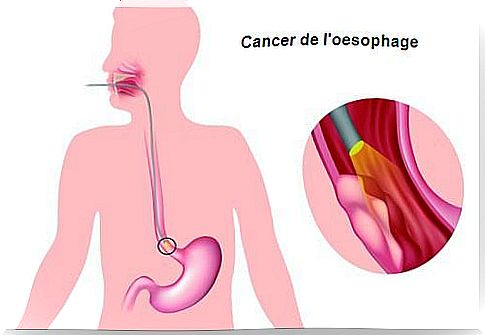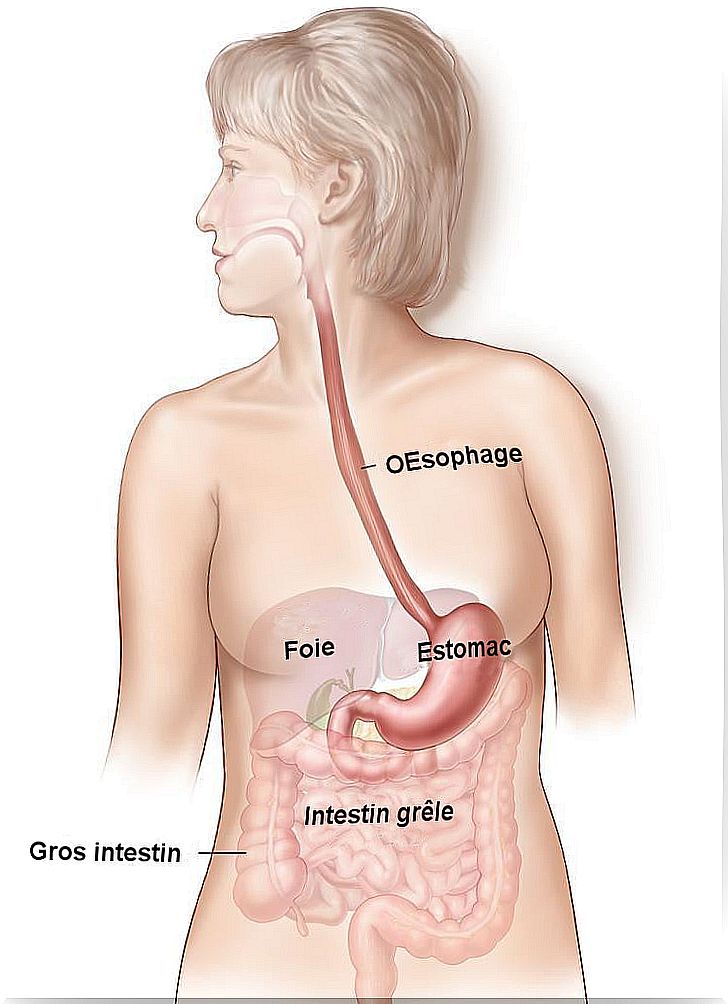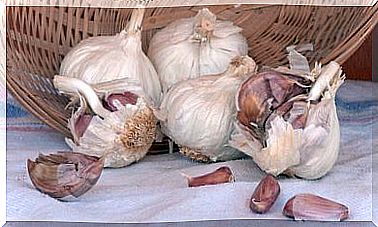Symptoms Of The Main Diseases Of The Esophagus
Symptoms of cancer of the esophagus are similar to those of gastroesophageal reflux, that is, pain when swallowing or acidity, which is why it is easy to confuse these two diseases.

The esophagus is vital for the body. It is he who is responsible for transporting food and liquids. On the other hand, we only notice its presence when we swallow something too big, or when we swallow something colder or hotter than normal.
There are specific esophageal disorders that you should be aware of, which are best for your own health. Indeed, these are aspects that we sometimes forget when they are important. We explain them to you in this article.
Perhaps the most common problem associated with the esophagus is gastroesophageal reflux disease. But there are other diseases of a very special nature.
These infections will prevent us from eating normally or getting the nutrients we need. We will therefore see one by one the problems of this organ in our body.
Diseases of the esophagus and their symptoms

1. Achalasia
What is that ?
It is a disease, sometimes hereditary, where the esophagus (formed by a kind of rings) stops contracting. It therefore no longer transports food to the stomach in the normal way.
Symptoms
- We have the feeling that food is blocked in the esophagus, it is difficult to swallow.
- First, it starts intermittently, until gradually one is also having trouble swallowing fluids.
- Then, when you lie down, you feel nausea. There may also be some kind of thick liquid coming into our mouth.
- Likewise, when one vomits, pieces of food can then surface. But this time, we don’t have the well-known sour taste. Indeed, these foods did not reach the stomach.
- Cough
- Episodes of pneumonia.
- But also, a pain in the chest which reaches up to the back and in the jaw too.
- And finally, weight loss.
Also read: 4 high fiber recipes for digestion.
2. Gastroesophageal reflux disease

What is that?
We all know that the stomach secretes acid and pepsin, these two elements are basic for the digestion of food. There is a valve that separates the esophagus from the stomach. It may be that the latter has a problem, it then lets the acids escape to the esophagus, so that’s what causes us injuries.
Symptoms
- A burning sensation in the chest and throat.
- We have the impression that the food we eat is coming back to our throat again.
- In addition, spontaneous eruptions of gastric juice reach our throat, which inevitably irritates it.
- Appearance of a cough and hoarseness… especially in the morning.
- There is also a strong pain in the chest because of the acids which concentrate in the esophagus.
- A feeling of suffocation during the night.
- Vomiting with blood.
- Dark stools.
- And, still weight loss
3. Gastroesophageal varices
What is that ?
Esophageal varices are abnormally dilated veins, they are located in the final part of the esophagus, which therefore communicates with the liver. And when our liver is sick, those veins can break. This is something quite serious.
Symptoms
-
- When we have varicose veins in the esophagus, we usually have very dark stools.
- We are therefore seized with recurrent vomiting with the appearance of blood or species of coffee grounds.
- Finally, we have nausea, a feeling of cold, a feeling of weakness… all of this is due to the loss of blood.
4. Esophageal cancer
Esophageal cancer is born when malignant cells attack the tissue and its structure, they then invade it completely. The origin of this problem is almost always linked to tobacco consumption. However, a small percentage is unrelated to this cause, the reasons for cancer in these cases are still unknown.
Symptoms
-
- Difficulty swallowing, either liquids or solid foods.
- Patients secrete thicker saliva.
- There is also pain in the chest.
- Likewise, one feels pain when swallowing, as well as acidity. Moreover, very often, this disease is then confused with gastroesophageal reflux.
- Weight loss
- A persistent, daily cough
- Repeated hiccups
- Episodes of pneumonia
- But also general pain in the bones and extreme fatigue
- Finally, anemia. We’re starting to lose blood inside. The stools become dark and you feel nauseous.









